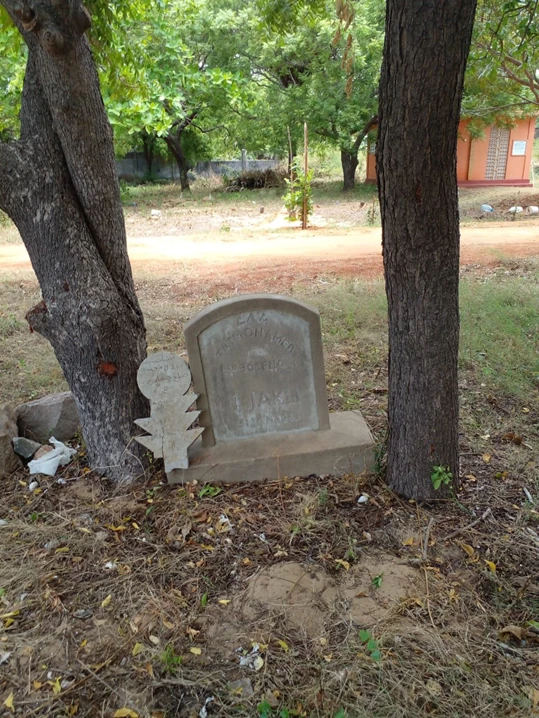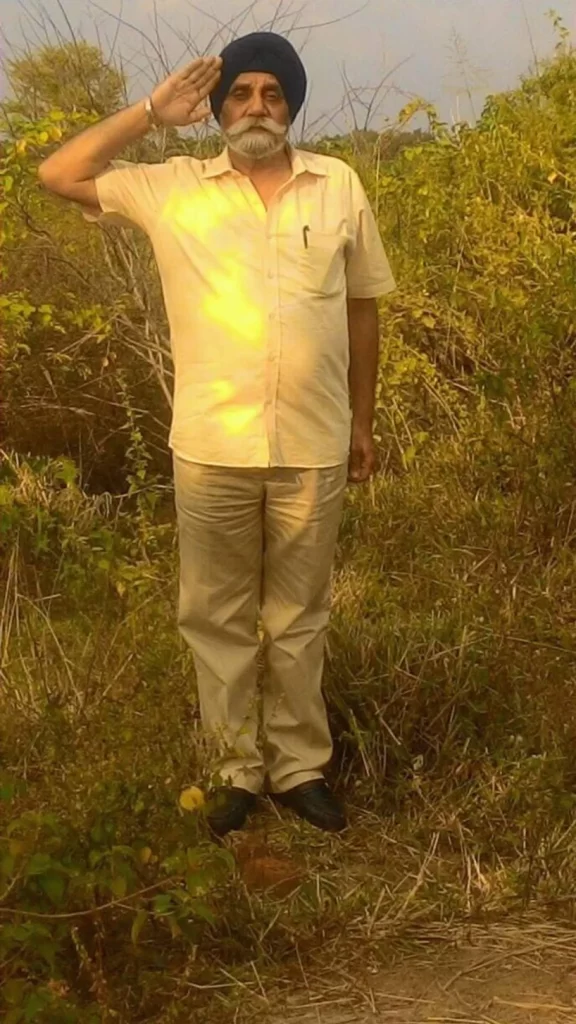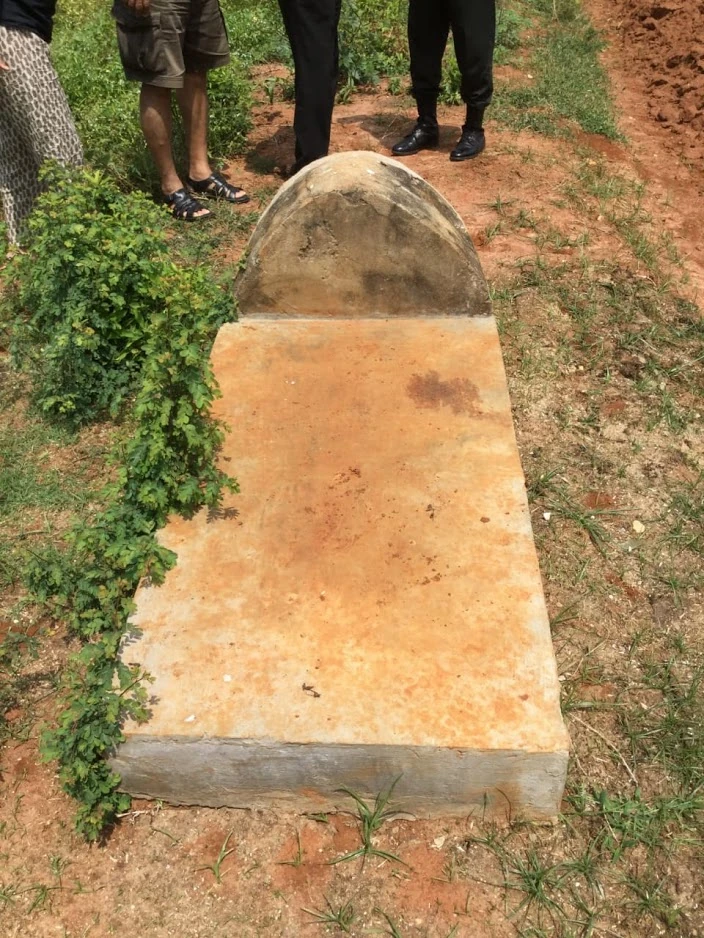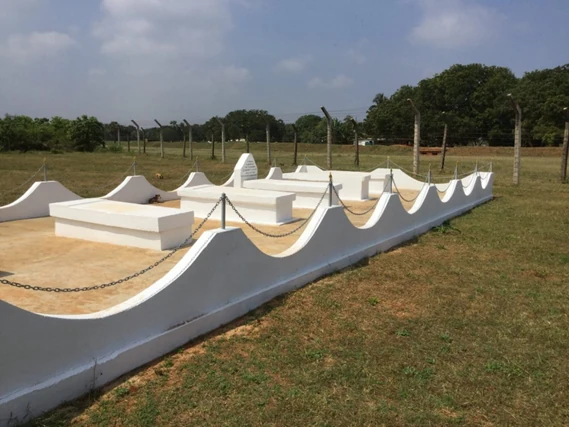Thirty-seven years have passed since Operation Pawan, a controversial and complex military mission that saw the Indian Peacekeeping Forces (IPKF) deployed in Sri Lanka from 1987 to 1990. Sent to stabilize the civil strife between the Sri Lankan government and the Tamil militant group LTTE, the operation was met with both political and public hostility, especially in Tamil Nadu. The heroes of this mission, who sacrificed their lives in foreign lands, have often been overshadowed by political narratives and indifference, leading to a deep-rooted apathy that continues to haunt the families of the fallen soldiers. Despite 1,127 soldiers having laid down their lives in this operation, their memory remains inadequately honored; their sacrifices have been lost in a haze of neglect. This article examines the persistent and painful disregard for these martyrs, sheds light on the troubling stories of apathy, and suggests possible measures for recognition and redemption.
How a PVC Was Cremated in Silence
One of the most tragic and unsettling accounts from Operation Pawan involves the story of a Param Vir Chakra (PVC) awardee who, even in death, was deprived of the honors due to a national hero. The battalion received instructions not to wear uniforms to the cremation due to the presence of LTTE sympathizers nearby. The heroism of a soldier who gave his life in the line of duty was muffled; his sacrifice was diluted by concern over local sentiments. This heartbreaking story highlights the indignity suffered by these brave soldiers whose ultimate sacrifices were concealed from the public eye. The minimal acknowledgment of a nation’s heroes casts a shadow on our collective respect for those who defend our country.
A Community’s Tribute: The Ramapuram Memorial for Maj. Parameshwaran, PVC
In a remarkable display of dedication and respect, a memorial for Major Parameshwaran, a recipient of the Param Vir Chakra (PVC) and a hero of Operation Pawan, was established in Ramapuram, Kottayam District, on 20 July 2023. Under the visionary leadership of Col. V. Achary (Retd.) and with the tireless support of veterans and the local community of Ramapuram, this initiative stands as a testament to the honor accorded to a true patriot. The community, driven by unwavering respect and commitment, raised an impressive sum of ₹13 lakhs through voluntary contributions, overcoming financial and logistical challenges with determination. Col. Achary’s devotion to preserving the legacy of Major Parameshwaran is inspiring and a reminder of the duty owed to those who lay down their lives for the nation. On 25 November each year, the community commemorates his courage in a grand ceremony, ensuring that his memory lives on in the hearts of those he defended.
This story is notable for the community’s commitment and official silence. Despite Major Parameshwaran’s distinguished honor as a PVC awardee, the Indian Army’s Adjutant General’s (AGs) Branch and the Mahar Regimental Centre did not contribute to the construction of this memorial. The absence of institutional support, especially for a soldier of Major Parameshwaran’s stature, raises questions about the values that drive official remembrance. Is this neglect what soldiers who sacrifice everything for their nation are met with in return? When even a PVC recipient’s legacy is honored only through private efforts, it underscores a more significant issue of indifference. This lack of support is disappointing and signals a profound oversight that demands reflection from military and civilian authorities alike.
A Tribute with Lessons for the Nation
The story of the Ramapuram memorial serves as a stark reminder of the need for genuine, widespread recognition of our soldiers. Just as the community honored Major Parameshwaran, India must ensure that heroes of Operation Pawan, like him, receive the respect and gratitude befitting their sacrifices. This initiative should inspire the nation to re-evaluate how we recognize and honor the lives lost in service, pushing for formal, enduring memorials that reflect the commitment of a grateful country.
The Hostile Reception of IPKF in Chennai
The returning IPKF soldiers were met with apathy and even hostility in Chennai. These soldiers, who had braved the uncertainties of guerrilla warfare, found themselves unwelcome in their own country. They returned to a home where their sacrifices were met not with warmth or gratitude but with resentment and suspicion, stemming from the perception that their mission was an unjust interference in a neighboring nation’s internal conflict. The reception in Chennai symbolizes the nation’s broader failure to honor those who served in Operation Pawan. This indifference was not just a rejection of the soldiers but a stain on national pride, ignoring the values of duty and honor.
The Callousness of Bureaucracy: The Story of a Widow’s Plea
One particularly distressing incident occurred when a widow approached a Tahsildar in Tamil Nadu, seeking her deceased husband’s death certificate. The official, in an appallingly insensitive tone, informed her that her husband had deserved his fate since he had been “fighting Tamils.” He dismissed her, advising her to “go to Sri Lanka and get it.” This incident exemplifies the heart-wrenching experiences of the families of IPKF soldiers. Not only did these families lose their loved ones, but they also faced an unsympathetic bureaucracy, a system unwilling to recognize their pain. Such stories reveal the double loss these families have had to bear—one of a family member and the other of faith in their country’s empathy and support.
Forgotten Martyrs: The 1,127 Soldiers Killed in Action
The staggering number of 1,127 soldiers killed in Operation Pawan stands as a sobering testament to the cost of this mission. Yet, these soldiers have never received the full recognition they deserve. Many are barely remembered, their names missing from commemorative plaques, and their sacrifices unrecognized by the nation. These soldiers, who fought under arduous conditions and in foreign lands, remain unnamed heroes, and their families continue to bear the burden of their loved ones’ forgotten valor. When a nation neglects to remember its fallen heroes, it forsakes the very principles that these soldiers upheld. The lack of national remembrance for these men is a deep scar in India’s military history.
The Tragic Reality of Cremations on Foreign Shores
Unlike soldiers killed in domestic operations, many of the IPKF martyrs were cremated on foreign soil due to logistical and financial limitations. The decision not to bring them back home is a testament to the cold pragmatism that overshadowed their sacrifices. These soldiers never returned to their homeland, not even in death, and their families were denied the chance to bid them a final farewell. This decision diminished these soldiers’ honor and eroded their families’ trust in the nation. When a country chooses not to repatriate its martyrs, it risks undermining the very loyalty and duty it expects from its armed forces.
Abandoned Graves in the Northern Areas of Sri Lanka

Today, unmarked graves of Indian soldiers are scattered across the Northern areas of Sri Lanka, a stark reminder of unfulfilled promises and forsaken duty. These graves, forgotten mainly by both governments, serve as silent witnesses to the sacrifices made in a foreign land.

Each of these graves represents a story of bravery and sacrifice, yet they lie untended, lost in the overgrown landscapes of Northern Sri Lanka. There is an urgent need for the Indian government to repatriate these bodies, honor these soldiers by bringing them home, or, at the very least, erect a memorial to preserve their legacy.


Symbolic Gestures and Political Apathy
Ironically, dignitaries often lay wreaths at the IPKF memorial in Colombo, but no similar gesture is extended to these heroes within India. This hollow symbolism reflects the apathy of political leadership, the bureaucracy, and the military sections. The Indian government, the state government of Tamil Nadu, and the veterans who served in Sri Lanka have all remained silent or inactive regarding the establishment of a proper commemoration within India. Veterans of Operation Pawan, including high-ranking officers like Gen. A.S. Kalkat, Gen. V.K. Singh, and Gen. Manoj Naravane, have yet to bring about a meaningful remembrance for their fallen comrades. When symbols replace genuine honor, it is a system failure, betraying the values for which these soldiers gave their lives.
The Bureaucratic Resistance to Commemoration
The Army Headquarters dismissed Operation Pawan veterans’ efforts to establish a national Remembrance Day or a memorial, citing a “status quo” approach. Such responses only exacerbate the wounds of those who served and sacrificed. This passive resistance within the system reveals an unwillingness to acknowledge the operation’s complex legacy. However, maintaining the status quo does nothing to honor the sacrifices of the fallen soldiers or console their families. It is vital for the armed forces and government to actively address this oversight to give Operation Pawan the recognition it rightly deserves in India’s military history.
Overcoming the Apathy: A Path Toward Redemption
After 37 years, the time has come to address this grave oversight. First, a national memorial honoring the martyrs of Operation Pawan must be established within India, serving as a reminder of their sacrifice. An annual commemoration ceremony should accompany this memorial, providing a dignified memorial for military and civilian leaders to pay their respects. Secondly, efforts must be made to repatriate the remains of soldiers buried in Sri Lanka. If repatriation is not feasible, a collective cenotaph could be erected in their honor.
The bureaucracy must also be sensitized, particularly at the state level, to support fallen soldiers’ families better. Government officials should be trained to handle such cases with empathy and respect. Furthermore, it is crucial for veterans and retired officers to actively advocate for their comrades’ acknowledgment and guarantee the historical record of their sacrifices.
Conclusion
The story of Operation Pawan’s martyrs is a tale of neglect and indifference, a wound on the nation’s conscience. These soldiers, who laid down their lives in a foreign land under arduous conditions, deserve more than symbolic wreaths and forgotten graves. India, as a nation, owes it to these soldiers—and their families—to rectify this oversight and ensure their honoring with dignity and respect. By establishing a national monument, commemorating their sacrifices, and sensitizing our bureaucracy, we can finally address this legacy of apathy. Remember that the ultimate respect we can offer our fallen heroes is not mere silence but a commitment to honor their memories with the gratitude and reverence they deserve.
